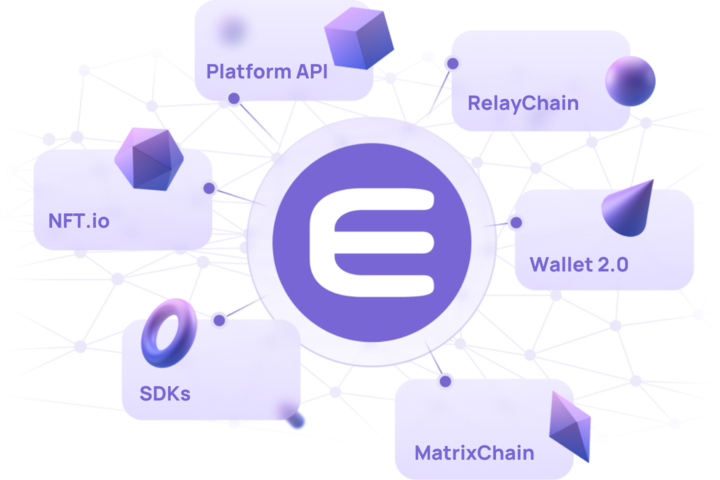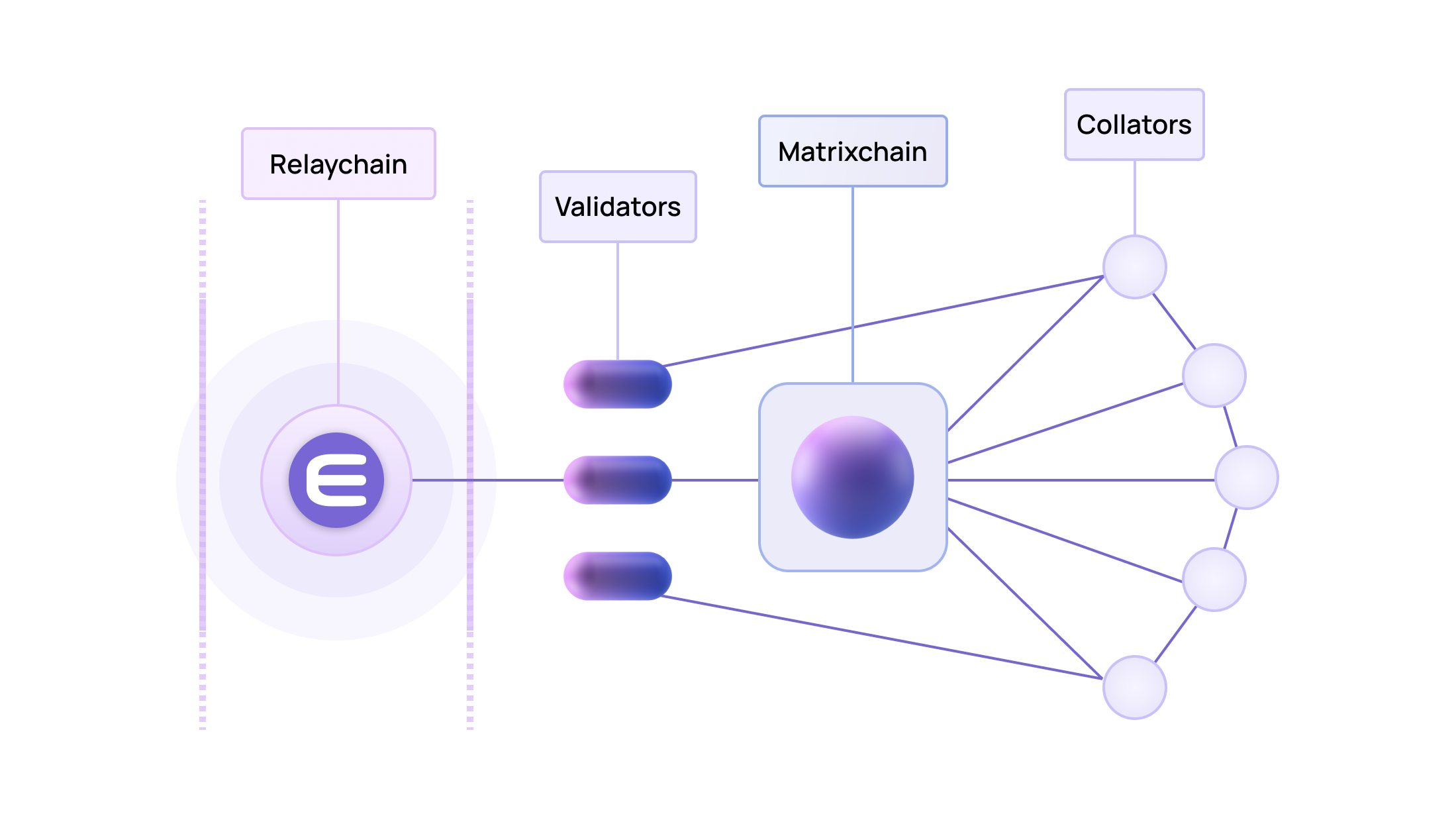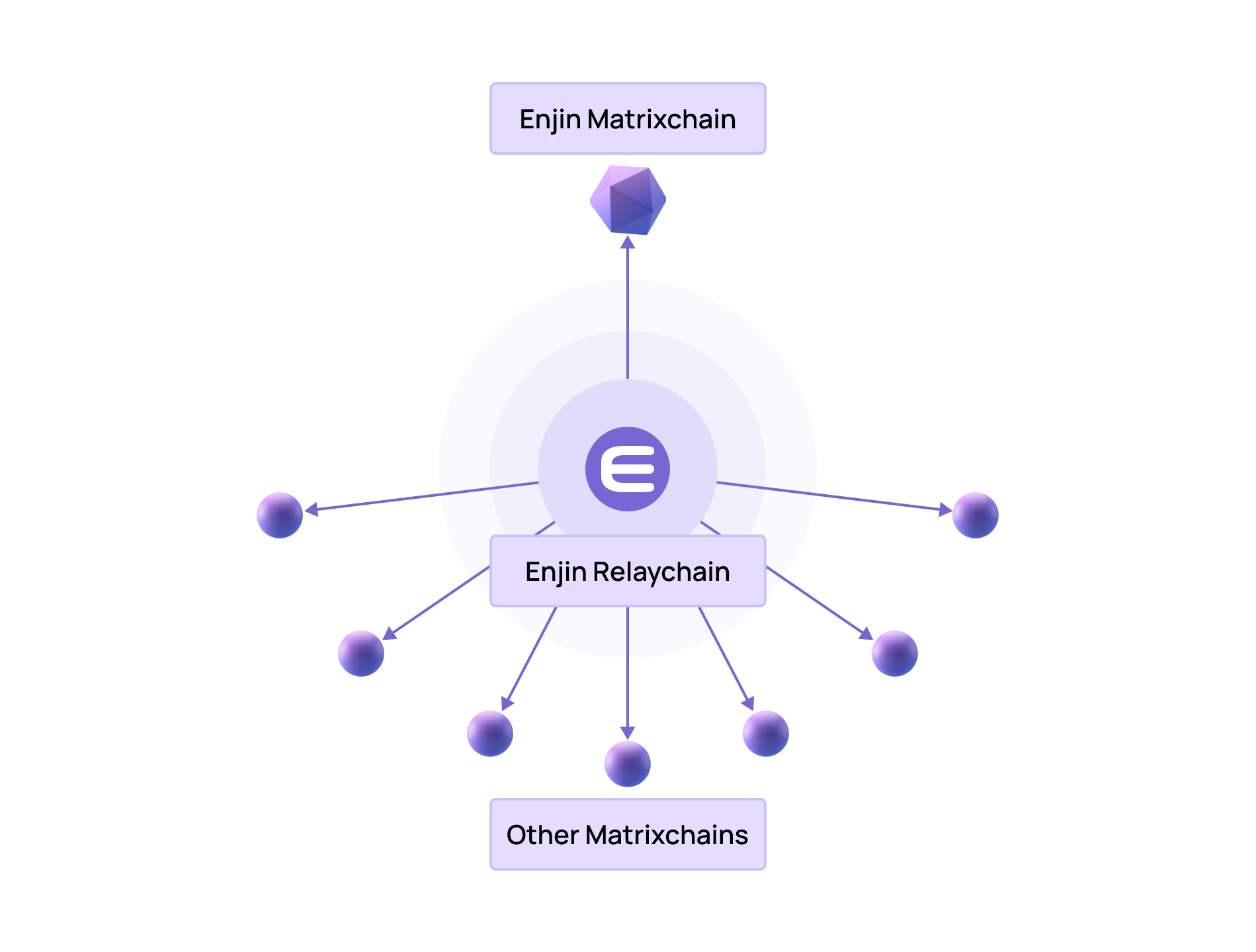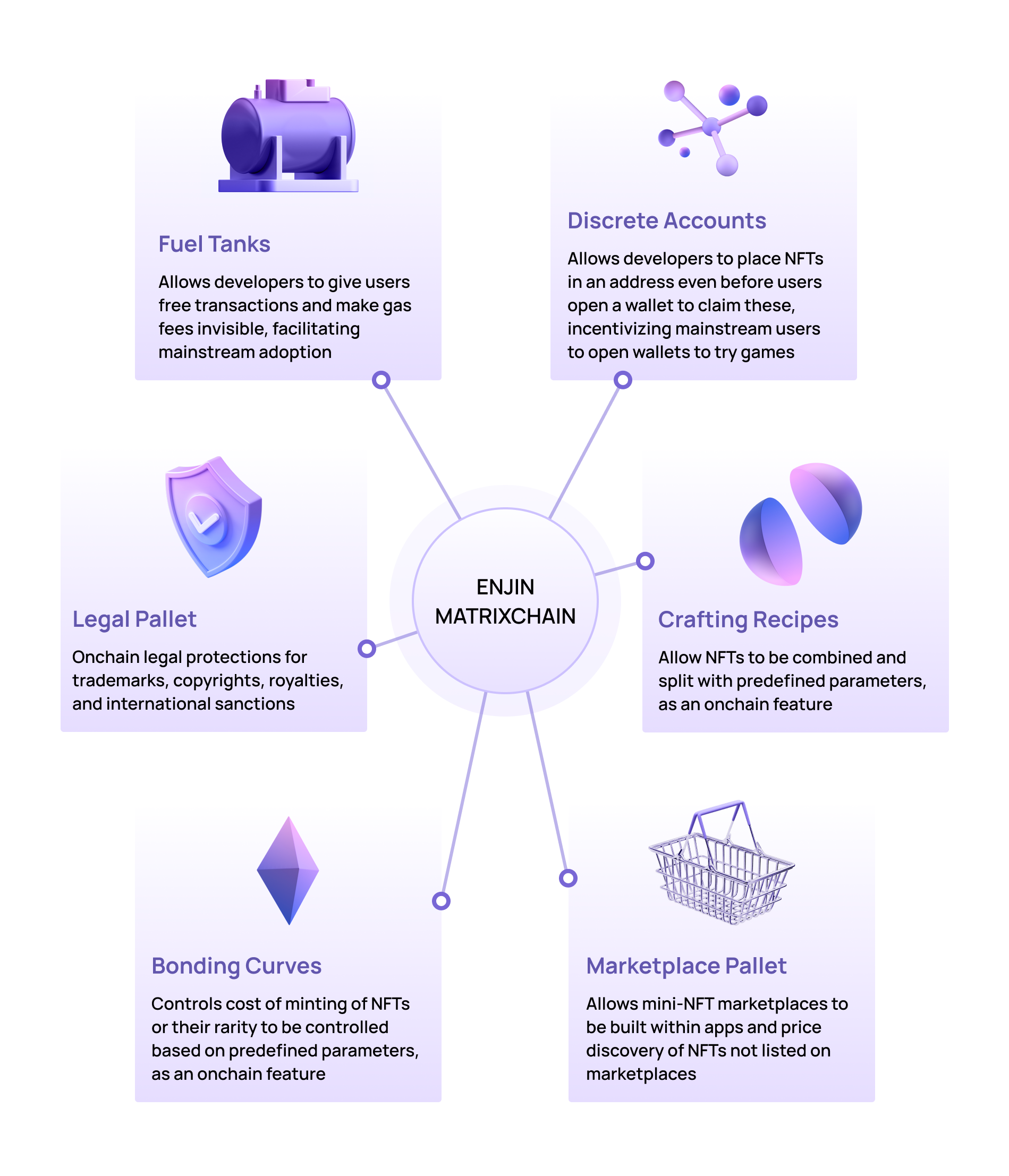What is Enjin? Enjin is a Blockchain platform built and developed to focus 100% on the Gaming market with high scalability. The project has successfully called for nearly $62M from many famous investment funds. So where does Enjin’s appeal lie and what’s interesting? Everyone, let’s find out what Enjin is in the article below.
To understand more about Enjin, people can refer to some of the articles below:
- What is NFT? All About NFTs
- What is ERC 1155? Harmonious Combination Between ERC 20 and ERC 721
Overview of Enjin
What is Enjin?
Enjin is a Layer 1 Blockchain built and developed to suit NFT, Gaming or business models based on games with scalability coming from the Relaychain infrastructure platform. Enjin not only aspires to become the leading Blockchain Gaming but also aims to widely apply it to many different fields.
It can be said that Enjin Platform is one Platform as a Service (PaaS) is designed to be extremely simple to easily build and manage a Blockchain Gaming.
Enjin is an ecosystem of different products and they all have a single goal of making it easier than ever for developers to build games. Enjin’s ecosystem includes Enjin Platform, NFT.io, Enjin Wallet 2.0, SDKs, Beam and more.

Enjin Platform provides comprehensive toolsets and services for developers with available SDKs, Platform API and Daemon wallet. Relaychain and Matrixchain plays a backbone role in Blockchain infrastructure, NFT.io – crowdfunding platform and Beam – plays a role in distributing assets (NFTs) based on QR codes.
Structure of Enjin Blockchain
The structure of Enjin Blockchain is built and developed based on the Polkadot model. Relaychain on Enjin will be similar to Relaychain on Polkadot, Matrixchain on Enjin will be similar to Parachain on Polkadot.
Relaychain

Relaychain acts as the center, the heart of the Enjin ecosystem. Relaychain is the place where all Validators of the Enjin network gather, contributing directly to ensuring security and decentralization of the network. The main task of Relaychain is to coordinate and operate the entire system including it and Matrixchain.
Some of the notable benefits of Relaychain include:
- Ability of extension: Enjin Relaychain is built to be highly scalable, allowing for significantly improved transaction throughput and enhanced performance for projects, games, brands, and NFT communities globally.
- Matrixchain is highly customizable: Matrixchain can be arbitrarily designed and built according to the needs of developers.
- Scalability and predictable costs: Deployment on Matrixchain will not cost as much as on Polkadot 1.0’s Parachain.
- Staking: Enjin Relaychain uses POS consensus mechanism so users can participate in staking easily and conveniently.
- Seamless integration: Enjin Relaychain seamlessly integrates with Enjin’s ecosystem such as NFT.io, Enjin Wallet 2.0, SDKs,…
- Security: Enjin Relaychain is optimized for security, network synchronization, and block validation.
Matrixchain

Matrixchain is authorized to perform specific tasks and functions. Simply put, Matrixchain will be designed with specific characteristics and features for a specific application. All transactions on Matrixchain will be verified by Relaychain.
It can be said that Matrixchains do not need to worry about building the Validator network because that is handled by Relaychain. Matrixchains will focus on what they need to do such as increasing scalability, expanding business models, developing ecosystems, promoting users from Web2 to Web3,…

Some outstanding features from Matrixchain are available such as:
- Asset Minting: Matrixchain supports many different asset types including NFTs and FTs.
- Fuel Tanks: This function allows pricing of transaction fees for various activities on the platform. By providing this flexibility, Enjin can accommodate a wide range of transaction types, from simple money transfers to more complex asset interactions.
- On-chain Marketplace: A platform that allows buying and selling any type of asset. On-chain Marketplace on Enjin has many similarities with today’s popular Marketplace platforms such as Opensea, Magic Eden,…
- Bonding Curves: The Bonding Curves model helps Matrixchain set the increase or decrease in prices of assets depending on the supply and demand of the market.
- Legal Pallet: Matrixchain also supports legal protection measures for elements such as copyright, trademark,…
In addition to the utilities available above, developers can completely deploy additional utilities as they wish to suit their needs.
Development Roadmap
Update…
Investor
- August 28, 2017: Enjin ICO was successful and raised $23M worth of funds from the community.
- October 22, 2019: At the Series A round, Enjin successfully called for Blockchain.com for an undisclosed amount.
- March 31, 2021: Enjin successfully raises $18.9M led by Hashed, Crypto.com and Digital Finance Group with participation from Blocktower Capital. Arrington XRP Capital, Haskey Capital, Iconium,…
- July 1, 2021: Enjin ICO was successful and raised $20M worth of funds from the community.
Core Team
Maxin Blagov: Co Founder & CEO
- Maxin studied at the Department of Computer Science at the University of Sydney and the University of Technology Sydney.
- Right after graduating, Maxin immediately started building and developing Enjin.
Rene Stefancic: COO
- Rene earned a Bachelor’s degree in Economics from the University of Ljubljana and a Master’s degree in Management from Primiska University.
- Before coming to Crypto, Rene was in charge of Marketing at Piaggio Group and Adriatic. Besides Marketing, Rene also leads product-related positions at CoinCodex and Adriatic.
- Rene went deeper into Crypto when working as an Advisor for NFTFrontier and officially joined Enjin from May 2021.
Tokenomics
Information about Enjin tokens
- Project name: Enjin
- Token code: ENJ
- Blockchain: Ethereum
- Smartcontract: 0xf629cbd94d3791c9250152bd8dfbdf380e2a3b9c
- Total supply: 1,000,000,000
Token Allocation
- Private Sales: 40%
- Team & Advisor: 10%
- Community Marketing: 10%
- Public Sales: 40%
Token Release
The project has released all tokens to the market.
Token Use Case
ENJ is used to participate in staking and governance in the network.
Exchanges
Currently users can trade ENJ on exchanges such as Binance, Coinbase, Kucoin, Kraken,…
Project Information Channel
Summary
Enjin is a Blockchain targeting the Gaming market, but as more and more Gaming Blockchains are born, what solution will Enjin have to rise up? Hopefully through this article everyone can understand more about what Enjin is?


